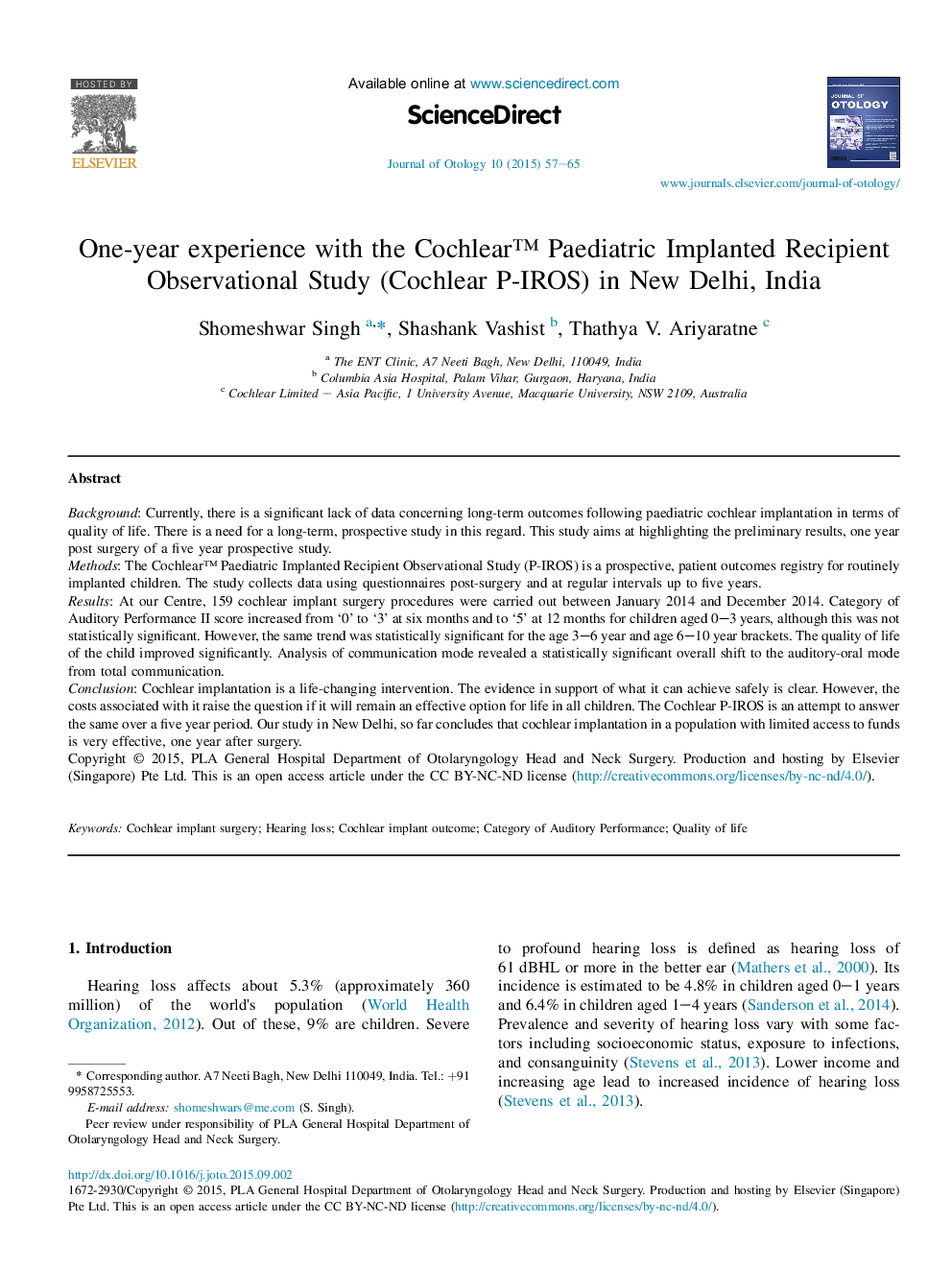| Article ID | Journal | Published Year | Pages | File Type |
|---|---|---|---|---|
| 4116655 | Journal of Otology | 2015 | 9 Pages |
BackgroundCurrently, there is a significant lack of data concerning long-term outcomes following paediatric cochlear implantation in terms of quality of life. There is a need for a long-term, prospective study in this regard. This study aims at highlighting the preliminary results, one year post surgery of a five year prospective study.MethodsThe Cochlear™ Paediatric Implanted Recipient Observational Study (P-IROS) is a prospective, patient outcomes registry for routinely implanted children. The study collects data using questionnaires post-surgery and at regular intervals up to five years.ResultsAt our Centre, 159 cochlear implant surgery procedures were carried out between January 2014 and December 2014. Category of Auditory Performance II score increased from ‘0’ to ‘3’ at six months and to ‘5’ at 12 months for children aged 0–3 years, although this was not statistically significant. However, the same trend was statistically significant for the age 3–6 year and age 6–10 year brackets. The quality of life of the child improved significantly. Analysis of communication mode revealed a statistically significant overall shift to the auditory-oral mode from total communication.ConclusionCochlear implantation is a life-changing intervention. The evidence in support of what it can achieve safely is clear. However, the costs associated with it raise the question if it will remain an effective option for life in all children. The Cochlear P-IROS is an attempt to answer the same over a five year period. Our study in New Delhi, so far concludes that cochlear implantation in a population with limited access to funds is very effective, one year after surgery.
